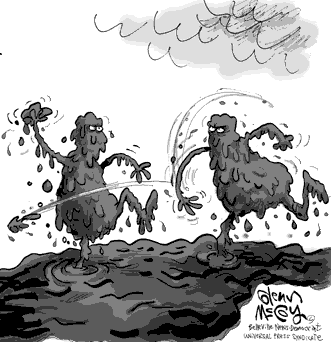It is more complicated than we think.
About ten years ago I did some research on the subject for a message series we were doing. I slightly cleaned up my notes:
(At this time my son and his family lived in Kazahkstan.) In a short time when my grandson asks his mom and
dad, “When is Christmas?” the answer could be quite complicated. Many of Nancy & Chris’s new neighbors will
recognize Christmas as being on January 7, while those who have been more
influenced by the West will go with December 25. A friend of mine who lives in Ukraine tells
me that many of his Ukrainian friends celebrate both days. That would be an option that I’m sure Kira
& Silas would find attractive.
So, what is the right day?
Both,
neither, either, whatever.
Have you ever wondered when you looked at a calendar, who
figured all this out and made it work?
Well, in 46 BC good old Julius Caesar introduced a calendar
that became known as the Julian Calendar.
In order to get things to work out right, the year 46 BC, or as the
Romans reckoned time it was the year 708—they began counting time from the
founding of Rome --was
445 days long. Julius’s calendar
actually began in 709/45.
The problem with the Julian Calendar is that they figured
that a year was 365
1/4 days long. That is
just a little too long. Under the Julian
calendar there were 100 leap years every 400 years. In our system there are only 97. As far as you getting to work on time
tomorrow, none of this matters, but when you are talking a couple of millennia
it adds up.
Some astronomers recognized
the problem and in 1582 Pope—keep that title in mind—Gregory the XIII decreed
the new Gregorian calendar. Various
countries adopted the new calendar at different times.
Though the nations of the world finally agreed on what day
it is, the churches still haven’t. You
remember it was Pope Gregory who . . .
The Eastern Orthodox churches who had split from the
Catholic Church or was it the other way around—actually they excommunicated
each other—weren’t about to . . .
So to this day they continue to follow the Julian
Calendar, at least in part. (You can find out more than you want to know, here & here.)
Actually in church history there are several dates that have
been considered the appropriate dates for the recognition of Christ’s birth:
Well, you say, we don’t know the day or maybe even the
month, but at least we know the year. It
was zero, right?
BC goes backward up to Jesus birth, and AD starts counting
forward after His birth, so Jesus was born at zero.
No, there is no year zero . . .
. . . It’s not even the year one.
Have you ever needed to time something, but you forgot to
start your watch when the event began?
So you started your watch when you thought of it and then
kind of estimated how much time had already passed. So you had an accurate count, plus an
estimate. No matter how accurate your
time is since you started the stopwatch, your over all timing is only as good
as the estimate you made.
It might seem obvious that Jesus
was born in the year 1 (of the Christian era, AD, Anno Domini). However, the
Christian calendar was only developed around 500 years later, and it took
another 500 years before it was generally accepted. As it happens, the Monk
(named Dionysius Exiguus) who developed the concept, was apparently off in his
calculations by around 4 years, as to exactly when Jesus was born. This results
in the fact that Jesus was apparently born in around 4 BC, an odd statement!
The actual calendar that was used
during Jesus' life was the Roman calendar. His family would have described His
birth to have occurred in (probably/about) 750 AUC.
(This website published by the Roman Catholic Church gives a good summary.)
The fact is there really is no
definitive statement. Conclusions are
drawn from various pieces of evidence:
The death of Herod the Great &
an eclipse that is mentioned in association with his death.
The beginning of the building of
the Great Temple
in Jerusalem .
Astronomical phenomena, etc.
The evidence leads to somewhere between 4 & 6BC.
While we may not be able to name
the date of Jesus birthday, we do know when it was in a far more significant
way.
Look at Gal. 4:4
But when the fullness of the time
came, God sent forth His Son, born of a woman, born under the Law, Galatians
4:4
So what is the answer to the
question, “When was Jesus born?” He was
born in the fullness of time—when the time was right.








 Father Jacques Hamel, an 86 year old Roman Catholic Priest was leading worship when two Muslim extremists, burst into the church in Normandy France, shouting, "Allah Akbar," and slit the cleric's throat. ISIS issued a statement that two of its soldiers had carried out the attack.
Father Jacques Hamel, an 86 year old Roman Catholic Priest was leading worship when two Muslim extremists, burst into the church in Normandy France, shouting, "Allah Akbar," and slit the cleric's throat. ISIS issued a statement that two of its soldiers had carried out the attack. they will respond with the grace that is becoming to those of us who bear your name.
they will respond with the grace that is becoming to those of us who bear your name.
 that took place in Minnesota and Louisiana. My son spoke eloquently about the mood of our nation.
that took place in Minnesota and Louisiana. My son spoke eloquently about the mood of our nation.  crowds who thronged to hear John the Baptist didn't get out of hand, or maybe they, like so many others, were simply curious about this camel-hair clad prophet. At any rate they approached the preacher of repentance. "Some soldiers were questioning him, saying, “And what about us, what shall we do?” (Luke 3:14). John's reply retains its relevance. “Do not take money from anyone by force, or accuse anyone falsely, and be content with your
crowds who thronged to hear John the Baptist didn't get out of hand, or maybe they, like so many others, were simply curious about this camel-hair clad prophet. At any rate they approached the preacher of repentance. "Some soldiers were questioning him, saying, “And what about us, what shall we do?” (Luke 3:14). John's reply retains its relevance. “Do not take money from anyone by force, or accuse anyone falsely, and be content with your wages.” (Luke 3:14) If any readers are police chaplains, John's three exhortations provide great material for men and women in Blue to consider. For we civilians, especially those of us who live in lands where we have input in our government, this gives a fair description of what we should expect from those who keep the peace.
wages.” (Luke 3:14) If any readers are police chaplains, John's three exhortations provide great material for men and women in Blue to consider. For we civilians, especially those of us who live in lands where we have input in our government, this gives a fair description of what we should expect from those who keep the peace.
